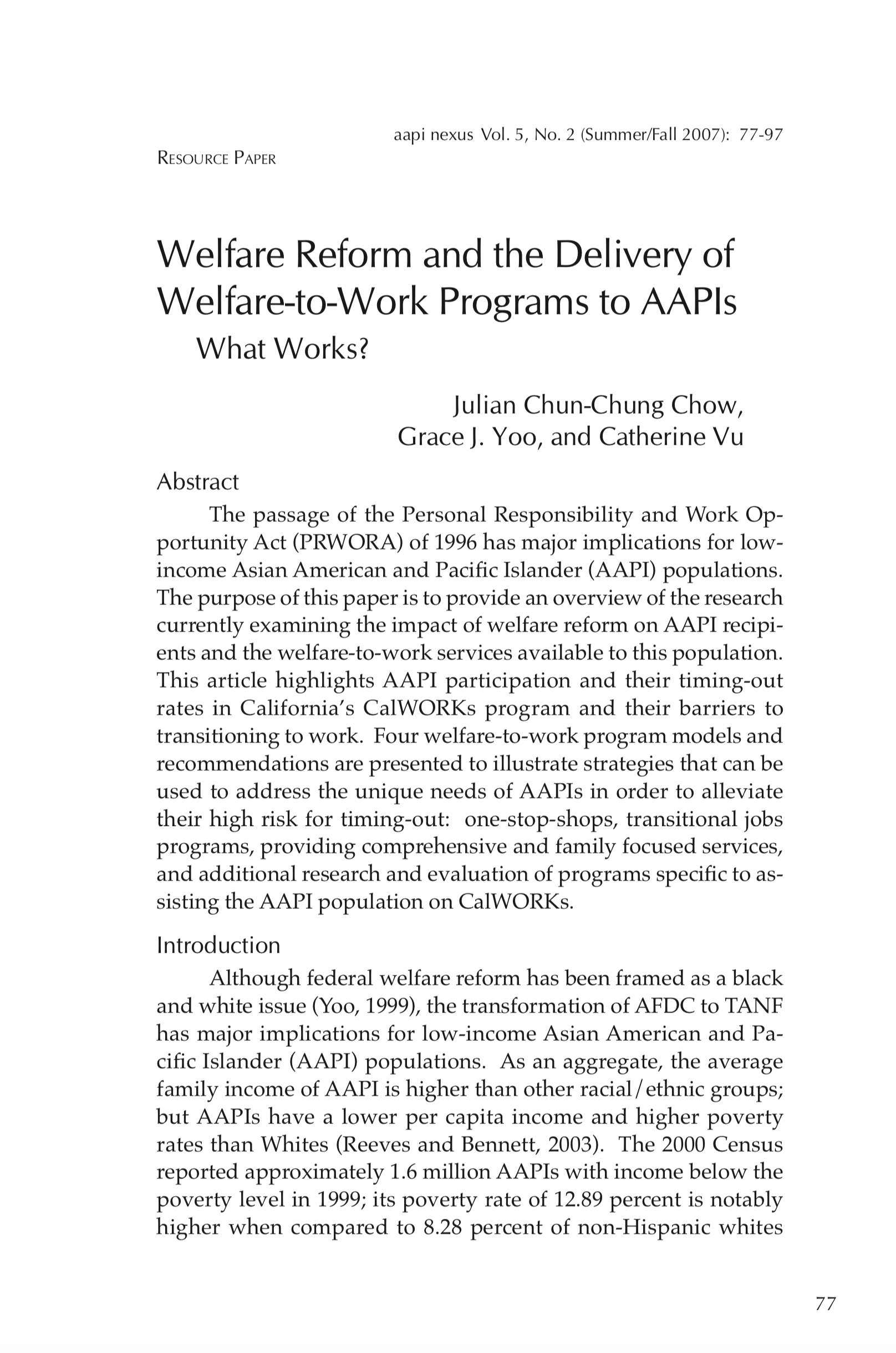“Welfare Reform and the Delivery of Welfare-to-Work Programs to AAPIs: What Works?”
Volume 5:2, p. 77 (2007)
by Julian Chun-Chung Chow, Grace Yoo and Catherine Vu
ABSTRACT: The passage of the Personal Responsibility and Work Opportunity Act (PRWORA) of 1996 has major implications for low-income Asian American and Pacific Islander (AAPI) populations. The purpose of this paper is to provide an overview of the research currently examining the impact of welfare reform on AAPI recipients and the welfare-to-work services available to this population. This article highlights AAPI participation and their timing-out rates in California’s CalWORKs program and their barriers to transitioning to work. Four welfare-to-work program models and recommendations are presented to illustrate strategies that can be used to address the unique needs of AAPI in order to alleviate their high risk for timing-out: one-stop-shops, transitional jobs programs, providing comprehensive and family focused services, and additional research and evaluation of programs specific to assisting the AAPI population on CalWORKs.
PREVIEW:

 Download
Download
Article Citation:
Julian Chun-Chung Chow, Grace Yoo, and Catherine Vu (2007) Welfare Reform and the Delivery of Welfare-to-Work Programs to AAPIs: What Works?. AAPI Nexus: Policy, Practice and Community: 2007, Vol. 5, No. 2, pp. 77-97.
